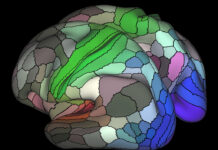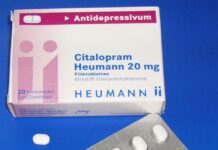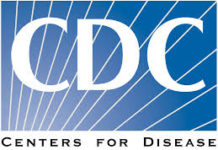Brain Scans Cannot Differentiate Between Mental Health Conditions
A new study analyzing over 21,000 participants found that differences in activation of brain regions in different psychological “disorders” may have been overestimated, and confirms that there is still no brain scan capable of diagnosing a mental health concern.
Industry Funded Trials Favor Drugs Over Psychotherapy
The researchers conclude that industry funding appears to bias studies towards pharmacotherapy over psychotherapy for the treatment of depression.
How ‘Premenstrual Dysphoric Disorder’ was Created by Pharma
For MinnPost, Susan Perry discusses that the pharmaceutical industry played in the creation of the ‘mental disorder’ known as premenstrual dysphoric disorder or PMDD....
“A Frenzy Of Lobbying On 21st Century Cures”
Kaiser Health News and NPR report on the immense lobbying effort aimed at passing the "21st Century Cures" Act which would fast-track FDA approval...
Safety Analysis Weighs Harms and Benefits of Antipsychotic Drugs
The researchers find that the drug effects for reducing psychosis are small and that treatment failure and severe side effects are common.
Pharma Data Sharing Efforts Off to a Slow Start
Researchers discuss the preliminary results of clinical trial data sharing efforts by pharmaceutical companies and other groups.
German Psychologists Declare “the Drugs Don’t Work”
Jürgen Margraf and Silvia Schneider, both well-known psychologists at the University of Bochum in Germany, claim that psychotropic drugs are no solution to mental...
Ghostwriting has a New Name but Same Problems
A new paper, published in the British Medical Journal, explains how the pharmaceutical industry has publicly denounced ghostwriting while still finding ways to engage...
Ioannidis Questions Strength of Psychology and Neuroscience Literature
Last week, well-known Stanford scientist John Ioannidis and his colleague Denes Szucs released a new analysis online. They examined research published in eighteen prominent...
New Study Raises Doubts About fMRI Neuroimaging Research
More than forty thousand papers have been published using functional magnetic resonance imaging (fMRI) technology to explore the brain. A new analysis of the common...
NEJM Editorial Doubles Down on Resistance to Data Sharing
The New England Journal of Medicine came under fire earlier this year when editors wrote that new efforts for transparency and open data would...
Researchers Pressure Psychiatric Journal to Retract Misleading Celexa Study
In 2004, the American Psychiatric Association published a paper supporting the use of the antidepressant citalopram (Celexa) in children and teens. After reanalyzing the...
“Vast Majority of Americans Want to Criminalize Data Fraud”
Retraction Watch highlights a new study, “Public Attitudes Toward Data Fraud And Selective Reporting in Science,” finding that the public overwhelmingly believes that data fraud...
Despite Official Recommendations, Depression Screening in Children is Not Supported by Research
Earlier this year, the US Preventative Services Task Force (USPSTF) came out with the controversial recommendation that all adolescent and adult patients undergo depression...
“Evolutionary Forces Are Causing a Boom in Bad Science”
From the New Scientist: “Paul Smaldino and Richard McElreath at the University of California Davis used an evolutionary theory-based computational model to analyse the problem of bad...
How Can We Address the Corruption Problem in Clinical Trials?
Recently, major researchers, including David Healy, Jon Juriedini, Mickey Nardo, and their colleagues, have brought a great deal of attention to issues of corruption...
Despite Official Recommendations, Young Children Are Still Receiving Drugs Instead of Therapy for ‘ADHD’
In 2011 the American Academy of Pediatrics (AAP) issued guidelines recommending therapy over stimulant drugs as the primary treatment for children diagnosed with ‘ADHD.’ New research from the CDC reveals, however, that children between ages 2 and 5 are still being prescribed medications before receiving the recommended therapy or psychological services. Overall, the researchers found that 75% of these children are being prescribed “ADHD’ drugs while no more than 55% receive psychological treatments. Incredibly, among children on private insurances, the percentage of children receiving psychological services for ‘ADHD’ showed no increase following the 2011 recommendations.
Coyne Covers Citalopram Controversy
In his “Mind the Brain” blog for PLOS, well-known researcher James Coyne reviews the controversy surrounding the latest case of a fraudulently reported study...
Interview: Researchers Deconstruct Ghostwritten Industry Trial for Antidepressant
Researchers, Jon Jureidini, Jay Amsterdam and Leemon McHenry, have taken a closer look at the data from a randomized control trial of citalopram (Celexa) that was ghostwritten and then used by the manufacturers to support claims of the drug’s efficacy and safety in the treatment of child and adolescent depression. To get the background on this story, we connected with Dr. Leemon McHenry, an investigator in this study and a lecturer in philosophy at California State University, Northridge.
Restoring Study 329: Letter to BMJ
When we set out to restore GSK’s misreported Study 329 of paroxetine for adolescent depression under the RIAT initiative, we had no idea of the magnitude of the task we were undertaking. After almost a year, we were relieved to finally complete a draft and submit it to the BMJ, who had earlier indicated an interest in publishing our restoration. But that was the beginning of another year of peer review that we believed went beyond enhancing our paper and became rather an interrogation of our honesty and integrity. Frankly, we were offended that our work was subject to such checks when papers submitted by pharmaceutical companies with fraud convictions are not.
Lancet Editorial Points to “Trouble with Psychiatry Trials”
While clinical trials make up the “bedrock of evidence-based medicine” in other specialties, psychiatry faces a number of both ethical and scientific problems related to its use of randomized control trials. According to a new editorial in The Lancet Psychiatry, the field of psychiatry research has particular problems with ethical issues in recruitment, inaccurate classification systems, and controversial placebo comparisons, and then, once the studies are finished, it often remains unclear what the “outcomes actually mean for people’s lives.”
“What Drug Ads Don’t Say”
For the New York Times, Cornell psychiatrist Richard Friedman proposes new regulations to make direct-to-consumer drug ads reveal the relative price and effectiveness information that...
Suicide Rates Rise While Antidepressant Use Climbs
Multiple media sources are reporting on new data from the CDC revealing a substantial increase in the suicide rate in the United States between 1999...
Highly Cited JAMA Psych Paper Retracted for “Pervasive Errors”
A study, comparing the effects of antidepressants combined with psychotherapy for severe depression to antidepressants alone, has been retracted and replaced by JAMA Psychiatry....
“Big Science is Broken”
For The Week, Pascal-Emmanuel Gobry comments on the current state of Science: the replicability crisis, the failure to self-correct, outright fraud, the inadequacy of...





















